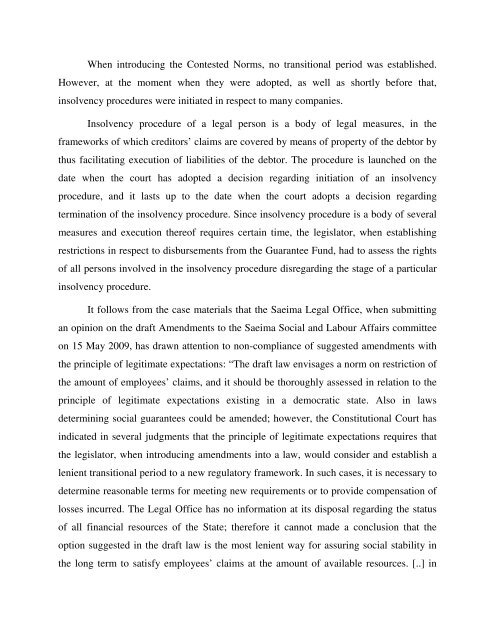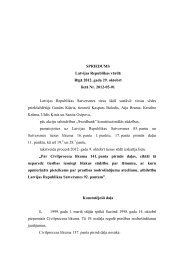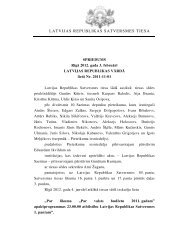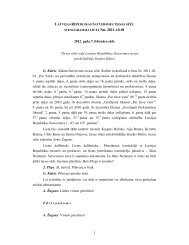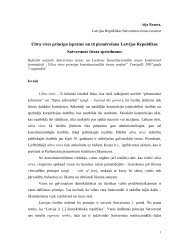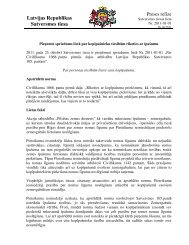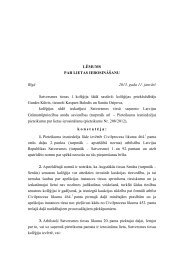Judgment - Satversmes tiesa
Judgment - Satversmes tiesa
Judgment - Satversmes tiesa
Create successful ePaper yourself
Turn your PDF publications into a flip-book with our unique Google optimized e-Paper software.
When introducing the Contested Norms, no transitional period was established.<br />
However, at the moment when they were adopted, as well as shortly before that,<br />
insolvency procedures were initiated in respect to many companies.<br />
Insolvency procedure of a legal person is a body of legal measures, in the<br />
frameworks of which creditors’ claims are covered by means of property of the debtor by<br />
thus facilitating execution of liabilities of the debtor. The procedure is launched on the<br />
date when the court has adopted a decision regarding initiation of an insolvency<br />
procedure, and it lasts up to the date when the court adopts a decision regarding<br />
termination of the insolvency procedure. Since insolvency procedure is a body of several<br />
measures and execution thereof requires certain time, the legislator, when establishing<br />
restrictions in respect to disbursements from the Guarantee Fund, had to assess the rights<br />
of all persons involved in the insolvency procedure disregarding the stage of a particular<br />
insolvency procedure.<br />
It follows from the case materials that the Saeima Legal Office, when submitting<br />
an opinion on the draft Amendments to the Saeima Social and Labour Affairs committee<br />
on 15 May 2009, has drawn attention to non-compliance of suggested amendments with<br />
the principle of legitimate expectations: “The draft law envisages a norm on restriction of<br />
the amount of employees’ claims, and it should be thoroughly assessed in relation to the<br />
principle of legitimate expectations existing in a democratic state. Also in laws<br />
determining social guarantees could be amended; however, the Constitutional Court has<br />
indicated in several judgments that the principle of legitimate expectations requires that<br />
the legislator, when introducing amendments into a law, would consider and establish a<br />
lenient transitional period to a new regulatory framework. In such cases, it is necessary to<br />
determine reasonable terms for meeting new requirements or to provide compensation of<br />
losses incurred. The Legal Office has no information at its disposal regarding the status<br />
of all financial resources of the State; therefore it cannot made a conclusion that the<br />
option suggested in the draft law is the most lenient way for assuring social stability in<br />
the long term to satisfy employees’ claims at the amount of available resources. [..] in


